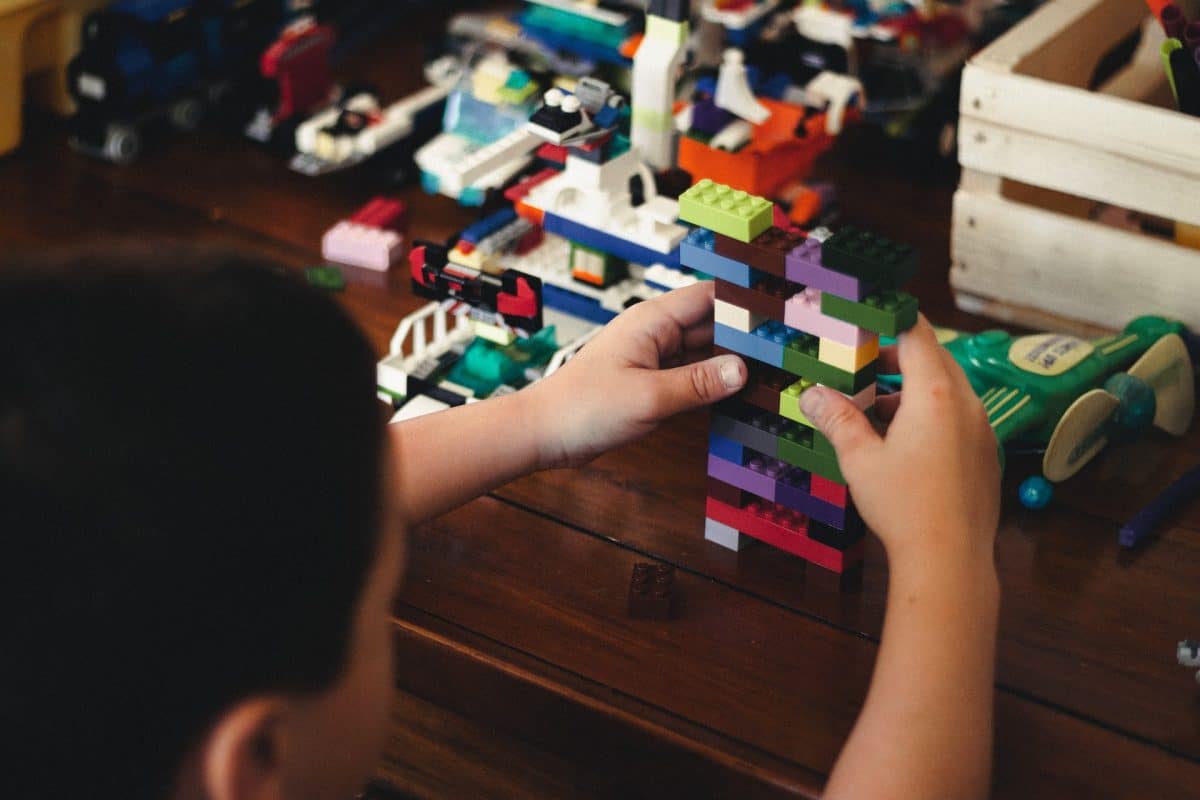It can be difficult for parents of autistic children to help them adapt to their environment. Many kids with autism have trouble with social interactions and sensory processing, which can make everyday activities like going to school or the grocery store a challenge. In this article, we will discuss some ways that parents can help their children with autism adapt to their surroundings. So, let’s get started

1) Help them Develop Social Skills
One of the most important things that parents can do to help their autistic children adapt to their environment is to help them develop social skills. This can be done in a variety of ways, such as role-playing social situations, teaching them how to read body language, and providing positive reinforcement when they display appropriate social behaviors. Although it may be difficult, since autism and developing social skills often have a chicken-and-egg dynamic, helping your child work on their social skills can help them better interact with others and be more comfortable in new environments. It is important to start early, as the sooner you help your child develop social skills, the more successful they will be in adapting to their environment.
2) Use Visual Support
Visual supports such as photographs, symbols, and schedules can be used to help teach autistic children how to navigate new environments. These visual tools can help them better understand what is expected of them in a given situation. For example, if you are taking your autistic child to the grocery store for the first time, providing a visual schedule of the items you will be purchasing can help them understand what is going on and make the experience go more smoothly. Visual support can also be used to help children with autism calm down and manage their behavior in new situations. For example, providing a visual cue to signal when it is time to take a break can be helpful in teaching them how to regulate their emotions.
3) Reduce Stress
Stress can be a major factor for children with autism. When it comes to adapting to their environment, reducing stress is important for both the child and the parent. This can be done by providing an environment that is predictable and calming, limiting sensory stimulation, and ensuring that the child has access to their favorite activities or objects. Additionally, offering a break before entering into a new situation can help them feel more comfortable with the change in environment.
4) Talk About New Experiences Ahead Of Time
When planning a new experience for your autistic child, it is important to talk about it ahead of time. This will help them to understand what is going on and prepare them for what to expect. You can explain the situation, give them a visual representation of it, and let them know what they can do to help themselves. This will help to reduce their stress levels and make the experience more positive. In addition, it is important to mention that it is okay to feel anxious or overwhelmed in new environments and that it is all part of the learning process.
5) Help Them Overcome Sensory Issues
People with autism spectrum disorder (ASD) often have sensory issues. This means they may be overly sensitive to certain sounds, smells, textures, or lights. They may also find it difficult to process information from their senses.
There are a few things you can do to help your child overcome sensory issues. First, try to create a calm and predictable environment for them. This will help them feel more in control. You can also help them by providing sensory input. This can be done in a variety of ways, such as through touch, movement, sound, or smell. Finally, make sure your child gets enough exercise and rest. This will help them regulate their sensory input and emotions. By helping your child overcome sensory issues, you can help them adapt to their environment.

6) Teach Coping Strategies
Another way to help children with autism adjust is by teaching them coping strategies. This will help them deal with the feelings of anxiety and overwhelm that can come from being in a new or unfamiliar situation. You can start by teaching them deep breathing exercises or guided meditation. You can also provide them with a few coping tools, such as a comfort object or worry stone, to help them process their emotions. Additionally, it is important to practice problem-solving skills so they can learn how to handle difficult situations.
7) Be Patient and Encouraging
Parenting an autistic child can be difficult, but it is important to be patient and encouraging. Many kids with autism respond well to positive reinforcement, so be sure to praise your child when they display appropriate behaviors. Try not to get discouraged if your child has a setback; instead, focus on the progress they have made. With time and patience, you will be able to help your child adapt to their environment. Not only will it benefit them, but it will also help you both develop a strong and loving relationship.
8) Seek Professional Help
If you are worried that your child is having difficulty adapting to their environment, it may be beneficial to seek professional help. A therapist or psychologist can offer guidance on how to create a supportive and safe environment for your child. They can also suggest techniques that will make the transition easier, such as developing a daily routine or creating visual cues. Additionally, they can provide support and resources to help you and your child cope with the changes.
There are many different ways to help autistic children adapt to their environment. It is important for parents and caregivers to be patient, creative, and flexible when working with these special children. Some of the methods that have been found to be effective include using visual aids, providing structure and routine, promoting communication, and helping the child understand social cues. When families work together as a team to provide love and support, autistic children can thrive both at home and in the community. What strategies have you found helpful when adapting to your environment? We hope this article was helpful to you.
- About the Author
- Latest Posts
Whether she is researching the latest trends in home decor, life-changing destination getaways, or the best way to maintain your finances, Dewey takes pride in leaving no stone unturned. She is passionate about distilling and delivering high-quality information that you can use to upgrade your life.




